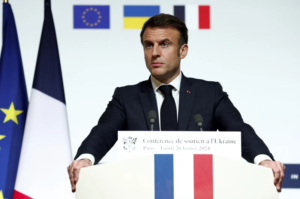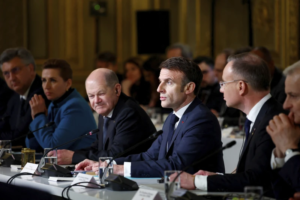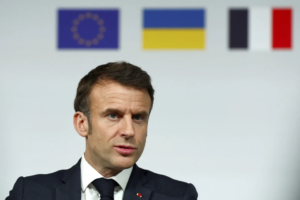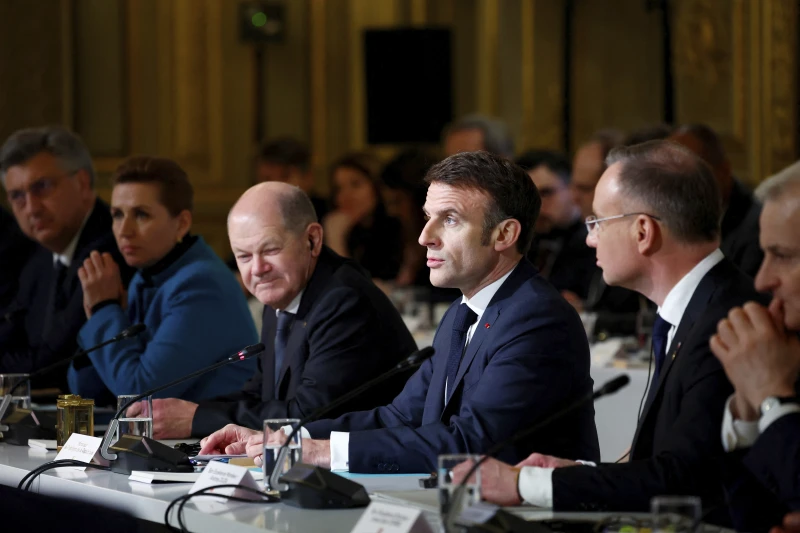French President Emmanuel Macron stirred up a whirlwind of debate across Europe with his recent remarks hinting at the possibility of Western troops intervening in Ukraine. But what drove Macron to raise such a contentious prospect, and how did his allies react?

During a press conference following a gathering of European leaders in Paris, Macron sparked controversy by suggesting that the deployment of Western troops to Ukraine couldn’t be ruled out entirely. This statement triggered a wave of concern among other leaders, prompting a swift backlash.
In an effort to clarify his position and mitigate the fallout, French officials moved to contextualize Macron’s comments, emphasizing the need to send a firm message to Russia regarding the situation in Ukraine. However, the Kremlin wasted no time in issuing a stark warning, cautioning that any NATO deployment of combat troops would inevitably escalate tensions and potentially lead to a direct confrontation with Russia.
Macron’s remarks, while raising eyebrows, left many wondering about the underlying motives and implications. According to Phillips O’Brien, a strategic studies professor at the University of St. Andrews, Scotland, Macron’s statement could serve as a strategic warning to Russia or a signal for preparedness among allies.
Nevertheless, Macron’s proposal encountered resistance from several European nations, including Germany and Poland, who swiftly distanced themselves from the idea of sending troops to Ukraine. NATO Secretary-General Jens Stoltenberg also affirmed that there were no immediate plans for NATO combat troops on the ground.

In an attempt to provide clarity, French Defense Minister Sébastien Lecornu underscored that any potential Western troop deployment would focus on de-mining and military training operations, rather than engaging in direct conflict with Russia. Similarly, French Foreign Minister Stéphane Séjourné emphasized that such actions would not cross the threshold into belligerence.
Behind Macron’s proposal lies a broader shift in European attitudes towards Russia, particularly in light of its aggressive actions in Ukraine. Macron himself has evolved from maintaining open communication with Russian President Vladimir Putin to adopting a more confrontational stance, evident in his recent remarks.
Macron highlighted Russia’s increasingly aggressive behavior, including the repression of political opposition and heightened military activities along Ukraine’s borders. Recent incidents, such as Russian threats against a French surveillance aircraft over the Black Sea and accusations of spreading disinformation across Europe, have further fueled concerns about Russia’s intentions.
Against this backdrop, Macron’s proposal reflects growing apprehension among European leaders about Russia’s actions and the need for a unified response. However, some analysts caution that Macron’s approach risks introducing division within NATO and may undermine the credibility of deterrence efforts against Russia.

As discussions continue among European allies, Macron’s proposal serves as a stark reminder of the complex geopolitical dynamics at play and the delicate balance of power in the region. Whether it leads to tangible action or remains a diplomatic gesture, Macron’s initiative underscores the pressing need for a coordinated strategy in addressing the crisis in Ukraine while navigating the complexities of the European security landscape.

